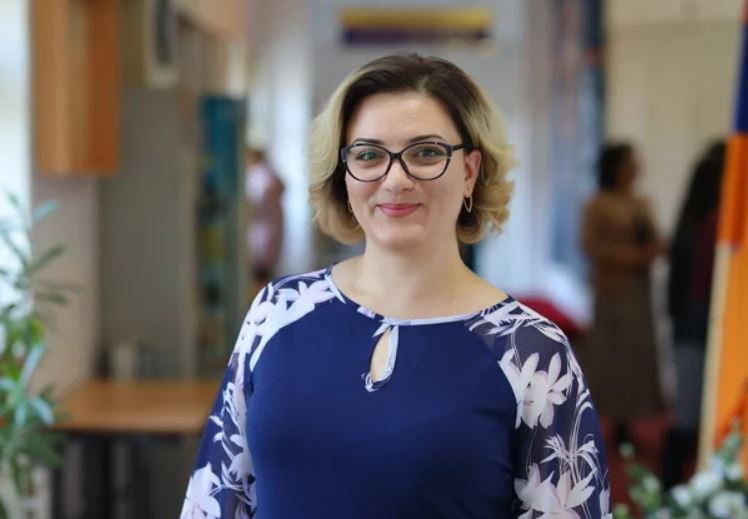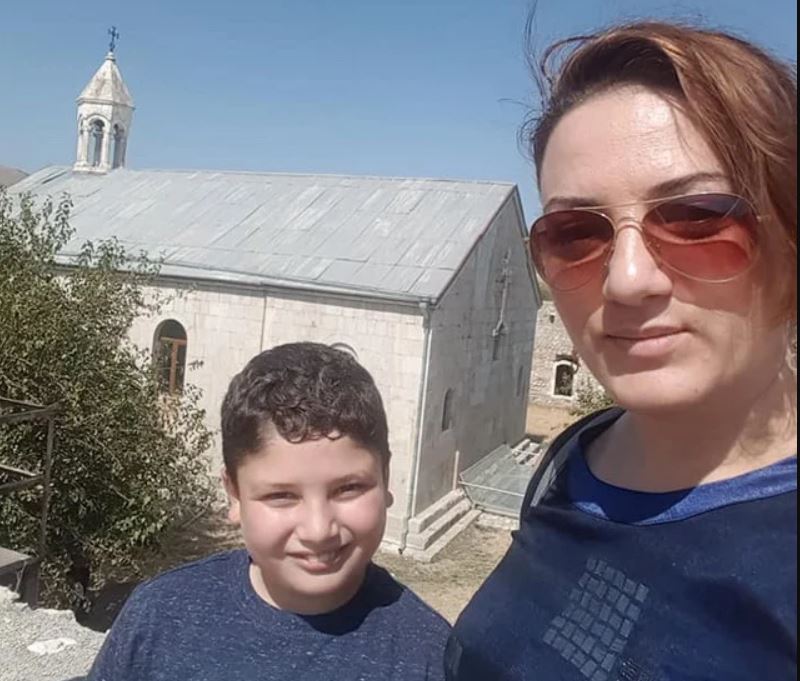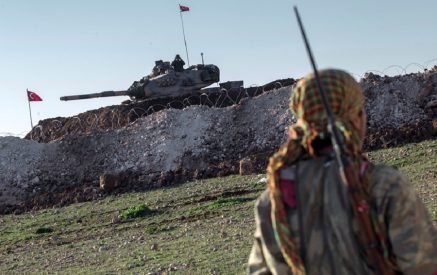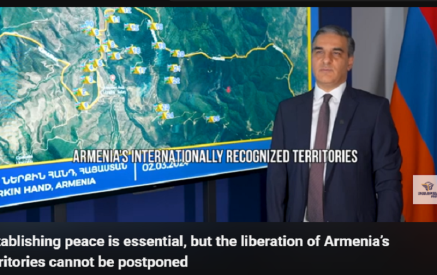“I feel it is temporary. I do not know, maybe it is false optimism, it is the optimism of an Armenian… But, all the same, I believe that I will return. I always follow different videos. I see that our building is in good condition. I see that many buildings have been demolished and destroyed, but ours is still standing… and I think I should go to our house,” said Alvina Nersesyan, a lecturer at Stepanakert’s Mesrop Mashtots University and head of the Center for Internal Quality Assurance.
The topic of conversation is 2020, the war, the new realities created after that, and the visions of the future. “My husband was at the front. I did not imagine at all- I, my children, my two sons left on October 5, 2020. We packed very light because I said it would be over, we would come back. And now as much as I think about the future, I think that I will be here, I will definitely return to my house in Shushi.” Alvina considers herself to have been forcibly displaced twice.
For the first time, at the end of the last century, at a young age, her family was deported from Baku and settled in Yerevan. Studied and graduated from the Valery Bryusov Linguistic Institute in Yerevan. In 2005, she got married and moved to Shushi, to her husband’s paternal home. “It was a very nice, very big and warm house. We recently saw different videos that the house is no longer there. It seems to me that it was destroyed during the bombing. But in 2014 we bought an apartment on loan in Shushi, near the Kanach Zham church. They built a very beautiful building.
I have two sons, both of whom were born in Shushi, although my husband and I worked in Stepanakert, but we found peace in Shushi. What happened happened, now we are trying again, but not with the thought that we will try to create everything from scratch in Stepanakert again, but with the thought that we will return to Shushi. It will be about two years since we were deported, but I feel that I am temporarily in Stepanakert, ”says Alvina.
Read also

Alvina Nersesyan
There were opportunities to go abroad with relatives, but they did not go. Many left after the 44-day war. She does not condemn it, but she does not welcome it either. “I do not agree: we must not do that. On the contrary, we must stay and live here. This is our land and we have the full right to build and create here.” According to her, unity is possible. “If everyone pulls the blanket on themselves, we will lose everything. At some point, everyone should understand that there is something beyond personal interests. Whatever is done, we will be responsible to our generations for today’s decisions. Therefore, it is possible to make the right decisions, to unite, to have an ideology that will give us the future we all dream of.”
I asked about cohabitation. After the 44-day war, there is a lot of talk about it. Alvina is thinking. There were Soviet times and some state of coexistence, but the 30 years of independence and the results of 2020, she says, make it impossible. “The wounds are very deep. I’m not ready for that. I am ready to live in my Shushi, but I am not ready to share my Shushi with the people who are now destroying Shushi. And Shushi is being destroyed, no matter how much construction is going on, our churches are being demolished. The road leading to Stepanakert, passing by Shushi, is painful, the ongoing construction is a slap in the face. Maybe this is the reality from which we should learn lessons,” says my interlocutor.
I am also “infected” by her optimism. Do your sons share his optimism, I ask? The eldest son, who was 16 years old, took the decision of November 9, 2020 very hard. “For a moment it seemed to me that he was even broken, he thought he had no homeland. He was born and raised in Shushi… Once he even asked me a question: Mom, now if they ask me, where are you from, what should I answer? I said, ‘You are from Shushi, Shushi is your birthplace, your city, we are not refugees, we were forcibly displaced from our hometown.’” During the two post-war years, the eldest son “got his wings” from such conversations, and now he is waiting to be drafted. The 13-year-old brother is moving in the mood of his older brother. “They think we should take back what we lost. As much as we understand that war is not a good way to resolve the issue for either side, but I do not see the desire to give up what they have in my sons.”
At the end of the conversation there are interesting and powerful thoughts. “Everything starts with the right planning, the right strategy. In order for the planning and strategy to be right, we must know exactly the point we want to reach, we must decide for ourselves what we want, be it Artsakh, be it independence or… be it within what borders? If we have this image, we have skilled professionals, brave people who are competent, they must go to that goal, and we will succeed. What I said refers to all spheres: political, economic, educational, and cultural.
Together with all Armenians, regardless of their place of residence, we must understand what status our homeland should have in this part of history. The solution to the Artsakh issue is not only the problem of Artsakh because there is no guarantee that the catastrophe will stop after the Artsakh issue is resolved in one way or another. Now they are talking about Syunik, they are talking about other settlements. After Syunik and after Vardenis, do we have a guarantee that they will not want Yerevan? Of course not.
Now, we need to understand what we want, do we want Yerevan to become Irevan? We must use all the levers. There is potential in the Diaspora, in Armenia, and in Artsakh, we just have to give those people the opportunity to work in a systematic way and we will move forward. We will get out of this situation.”
Nelly GRIGORYAN



























































